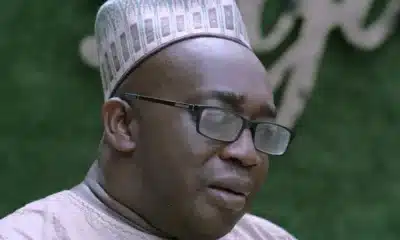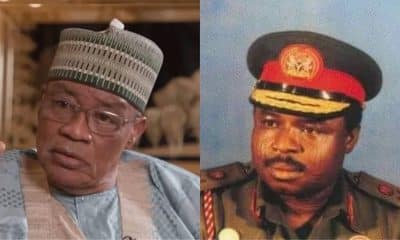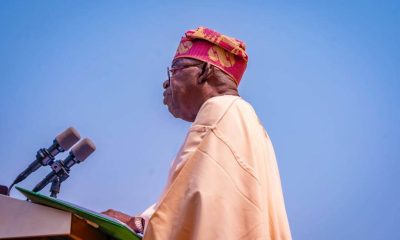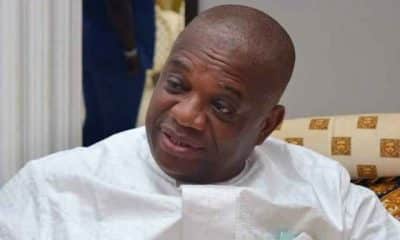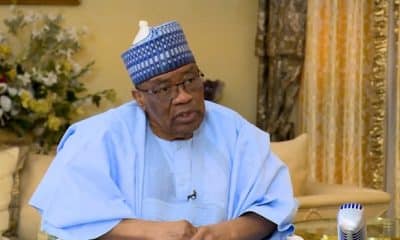Nigeria News
‘If You Could Execute Your Childhood Friend, Who Then Is Dele Giwa’ – Akinnola Questions Babangida
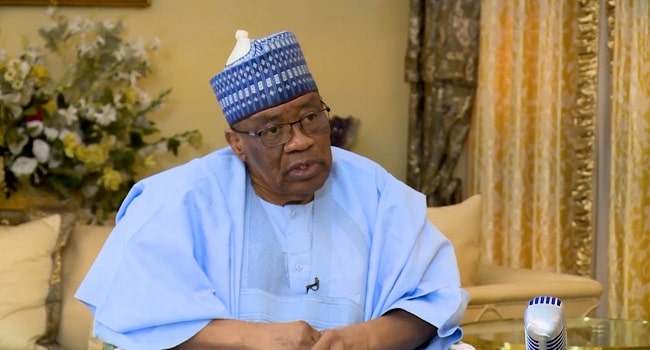
Veteran journalist and human rights activist, Richard Akinnola, has accused former military president, Ibrahim Badamosi Babangida of misrepresenting facts surrounding the 1986 assassination of Dele Giwa, the founding editor-in-chief of Newswatch Magazine.
Akinnola, in a detailed rebuttal released on Sunday, dismissed Babangida’s claims in his newly released autobiography, ‘A Journey in Service,’ alleging that the former military leader was being deceptive about his role in the case.
Reacting to Babangida’s denial of involvement in Giwa’s murder, Akinnola said it was not surprising, likening it to how criminal suspects always plead not guilty.
“I can understand the denial of General Ibrahim Babangida of his innocence over the murder of Dele Giwa. It is expected. Have you seen an armed robbery suspect charged to court pleading guilty? It’s a matter of self-preservation,” he said.
Naija News noted that he further referenced the 1990 failed coup attempt led by Major Gideon Orkar, noting that even the coup plotters denied the charges before the military tribunal.
“So, Babangida’s denial of his government’s involvement in the murder is understandable. However, in doing that, he doesn’t have that latitude of revisionism by deliberately misrepresenting facts,” he stated.
Akinnola Lists Two False Claims In Babangida’s Book
Akinnola pinpointed two major falsehoods in Babangida’s account regarding the letter bomb assassination of Giwa on October 19, 1986.
The first, according to him, was Babangida’s claim that the Supreme Court had suggested that Chief Gani Fawehinmi, Giwa’s lawyer, could have taken up the case as a private prosecutor, but he failed to do so.
“That claim is a blatant lie,” Akinnola insisted.
He recalled that on December 18, 1987, the Supreme Court unanimously ruled in Fawehinmi’s favour, granting him the right to privately prosecute two senior security chiefs of Babangida’s government—Col. Halilu Akilu and Lt-Col. A.K. Togun—who were accused of being behind the assassination.
Following the ruling, Fawehinmi sought an order from the Lagos High Court, compelling the State’s Director of Public Prosecutions (DPP) to either prosecute the suspects or grant him a fiat to do so.
Justice Olusola Thomas, in a ruling on January 21, 1988, ordered the DPP to make a decision on or before January 25, 1988.
Based on this ruling, the Lagos State Solicitor-General notified Fawehinmi that the state was ready to prosecute the suspects.
The case, The State v. Col. Halilu Akilu and Lt. Col. Kunle Togun (Charge No. ID/4c/88), was filed before Justice Eniola Longe, but the charges were later quashed.
Akinnola argued that if Fawehinmi had been granted full private prosecution rights, he would have summoned Babangida himself to testify under oath.
“I have 420 questions for Babangida. Let him stand in the witness box and answer those questions. Then, we will all know who killed Dele Giwa,” Fawehinmi had said at the time.
“Babangida Lied About The Oputa Panel”
The second false claim, according to Akinnola, was Babangida’s assertion that no fresh evidence emerged when President Olusegun Obasanjo’s administration reopened the Giwa case at the Oputa Panel.
Babangida had written in his book, “When the Obasanjo civilian administration reopened the Giwa case at the Oputa Panel on Human and Civil Rights, I expected that the police and lawyers would come forward with new evidence. Nothing of such happened.”
Akinnola dismissed this claim, stating that Babangida deliberately ignored key testimonies presented at the panel.
He revealed that retired Commissioner of Police, Abubakar Tsav, who led the investigation into Giwa’s assassination, testified under oath that his findings pointed to Babangida’s government as being responsible.
Akinnola also noted that Babangida himself refused to appear before the Oputa Panel despite being formally invited.
“He was wrong to state that the police and lawyers didn’t come up with anything new at the Oputa Panel,” Akinnola argued.
“Babangida, Dele Giwa Was Not Your Friend”
Akinnola further dismissed Babangida’s claim that Giwa was his friend, questioning the sincerity of that statement.
He said, “It is even deceitful to be referring to Dele as your good friend. From where to where? If you could execute your childhood friend, Mamman Vatsa, who then is Dele Giwa, whom you only met in the course of his official duties as a journalist?”
Akinnola’s rebuttal comes amid renewed scrutiny of Babangida’s legacy following the release of his autobiography, which has reignited debates about human rights abuses, press freedom, and unresolved assassinations during his regime.
While Babangida continues to deny involvement in Giwa’s murder, critics insist that his government has many questions to answer regarding the journalist’s assassination, which remains one of the darkest episodes in Nigeria’s press history.

